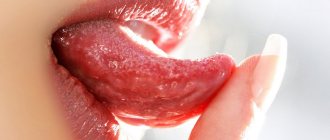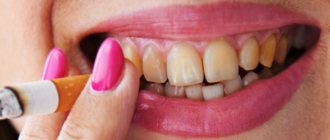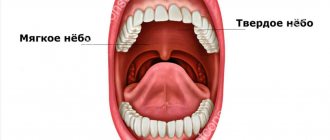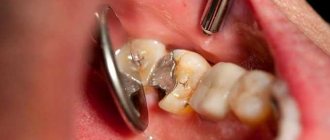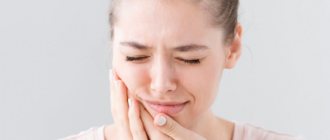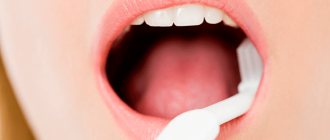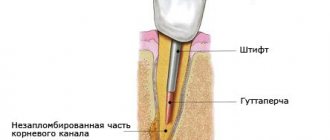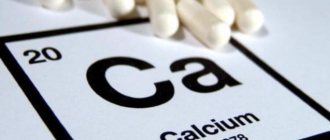The human oral cavity is the optimal place for the accumulation of large amounts of pathogenic microflora, which can easily penetrate the lymph nodes, salivary glands and even soft tissues and teeth. This causes the development of serious pathologies of internal organs, the occurrence of which is judged by the appearance of itching in them. If the roof of your mouth itches, the reasons can be quite serious. Therefore, to prevent the development of a dangerous disease, you should consult a specialist. This is necessary even if a person is 100% sure that there is no pathological factor in the formation of these negative symptoms.
Signs of irritation and inflammation of the palate
In fact, the symptoms can be completely different. It all depends on the cause of the pathology, the severity of the inflammatory process, and the individual feelings of each individual person. Discomfort in the palate can be manifested not only by pain, but also by itching, burning, tickling, and tingling. There is a feeling as if something is bothering and itching in the throat.
There may be several reasons why the palate hurts and itches
Some people feel like clearing their throat. In others, in addition to soreness and pain, the following symptoms appear: lacrimation, runny nose, sneezing, change in the shade of the mucous membrane, difficulty swallowing, sores and fever, thick plaque, bad breath, swelling of the tissues, general deterioration in health, increased salivation or, conversely, , lack of saliva and dryness. What can cause such different sensations? Read on.
Main causes and provoking factors
The reasons why the palate may itch can be different, ranging from harmless to chronic diseases:
- mouth infection;
- inflammation of the oral mucosa;
- failure to comply with hygiene rules;
- getting injured while chewing;
- dental diseases - caries, pulpitis, gum disease;
- sore throat – body aches, sore throat, tonsils enlarge;
- the removed nerve can damage the temporomandibular structure, causing subsequent inflammation and itching;
- inflammation from prolonged wearing of a prosthesis, or an allergic response to unsuitable material;
- pemphigus;
- leukoplakia;
- herpangina;
- the process of inflammation of the salivary glands;
- tumor;
- lack of essential minerals and vitamins;
- allergy;
- increased degree of anxiety, nervousness;
- damage to the palate by hard or too hot or cold food.
As you can see, there are a lot of reasons, but some of them are the most popular and frequently encountered. Let's look at the most popular factors that provoke oral itching.
Injuries and damage
As a rule, it is not difficult to determine why the roof of your mouth hurts and itches if you carefully analyze what you ate the day before. Even carbonated, sour, overly hard foods or food with sharp edges (for example, chips, chewing candy) can provoke irritation of the mucous membrane of this organ. You can scratch delicate tissues with a fish bone. Sometimes injury occurs due to a burn to the mucous membrane by hot food.
Some foods can cause injury to the roof of your mouth
The appearance of an unpleasant symptom can be facilitated by wearing removable dentures that cover the palate, put pressure on it, and rub. Adults experience itching and painful sensations on the mucous membranes due to smoking and systematic consumption of alcoholic beverages. In children, the problem often arises because they put various objects and toys in their mouths.
Injuries and damage to the mucous membrane heal quite quickly; after 2-3 days there are no wounds left. However, if injury occurs systematically, for example, due to smoking or wearing removable dentures1, then the risk of developing serious inflammatory processes (for example, denture stomatitis), tissue infection and even oncology increases.
Ways to get rid of the disease
If itching and redness of the mucous membrane of the palate are caused by minor injuries, traditional drug therapy is not required. To save the patient from this type of pathology, it is enough to operate with medicinal herbs:
- Minor injuries of a mechanical or thermal nature are effectively treated by using mouth rinse with decoctions of herbs, calendula and chamomile;
- Swelling and abscesses are treated with oak bark infusions prepared in water baths.
Rinses used for medicinal purposes should be slightly warm so as not to cause additional irritation to the damaged mucous membrane of the upper arch of the mouth.
Stomatitis
Why does the roof of my mouth itch, hurt, or itch? The reasons for this phenomenon quite often lie in the development of a disease of the mucous membrane such as stomatitis. It can occur against the background of constant injury to the organ, due to a weakened immune system, after illnesses and long-term use of antibiotics. With stomatitis, ulcers appear, which can also be localized on the palate. Also, in most cases, a person’s body temperature rises, and eating food causes very severe discomfort.
Stomatitis can also cause this symptom.
Why does the palate and throat itch?
The oral cavity is the initial section of the digestive tract. Therefore, she is the first to encounter various stimuli coming from the outside. And the result of their effect on the mucous membrane can be itching in the palate. Why this symptom appears and what to do to eliminate it are quite common questions. But only a specialist will give a detailed answer to them.
The palate is an anatomical structure that separates the nasal cavity from the oral cavity. In front it is formed by a bony septum, and in the back by soft tissue (a fold of mucous membrane) that passes into the tongue and arches. The palate takes an active part in voice formation and the formation of the food bolus. Therefore, its normal state is important for humans.
Candidiasis (thrush)
According to WHO, at least 20%2 of the population have suffered candidiasis of varying severity. But most of all, young children, elderly people (about 60%) and those who suffer from various chronic diseases are susceptible to this pathology caused by fungi of the genus Candida. All this against the background of weak immunity.
The cause of the tooth may be candidiasis
One of the main signs of candidiasis is a white cheesy coating covering the mucous membrane (can be localized on the tongue, inner surface of the cheeks, palate, tonsils, back of the throat). If the plaque is removed, then underneath it there are inflamed areas that bleed, itch and hurt.
Why your mouth itches: to get rid of an unpleasant symptom, find its cause
Itchy mouth? This is a common and sometimes alarming symptom that many people experience. Itching can be caused by viral or fungal infections, as well as allergies to food, pollen, latex, medications and other substances. If itching in the mouth is caused by an allergic reaction, it is often one of the manifestations of oral allergy syndrome.
Associated symptoms
Depending on the cause, itchy mouth may be accompanied by other symptoms:
- burning or tingling sensation in the mouth, throat, or tongue;
- swelling of the tongue, lips, or throat;
- itching or tickling sensations in one or both ears;
- runny nose;
- sneezing;
- dry cough,
- lacrimation.
While mouth itching may remain mild and never progress beyond the mouth/head, it can also indicate a dangerous allergic reaction.
What could be causing the itching?
There are several reasons why your mouth, throat, or lips may itch. So, if you have itching in your mouth and throat, the reasons may be:
If your mouth or lips itch, it could be due to herpes, oral thrush, or a mild food allergy.
If your mouth itches after eating, the reason may be:
Let's look at the most significant reasons.
Allergy
So, an itchy mouth can be caused by an allergy to a certain food or pollen. Oral allergy syndrome, also known as pollen-fruit syndrome, is likely.
It usually begins during adolescence and adulthood. Oral allergy syndrome can occur even when you eat foods that you previously consumed without problems.
Oral allergies are the most common type of food allergy. It appears as:
- itching and tingling in the mouth, tongue and throat;
- swelling in and around the mouth;
- unusual taste in the mouth;
- itching of the ears.
These symptoms are usually mild and do not last more than 20 minutes. But sometimes they can develop into a more dangerous anaphylactic reaction, which is already an emergency.
Oral allergy syndrome is thought to occur when certain proteins in a food are similar to allergenic proteins found in the pollen of certain plants - wormwood, birch, grasses or ragweed.
In people suffering from seasonal allergies, oral syndrome may occur after eating certain raw fruits or vegetables, nuts, and spices. This is called cross-reactivity: the human immune system reacts to the similarities between protein compounds in pollen and food.
Herpetic infections
If you are prone to contracting the herpes virus, you may also experience itchy mouth. Many people experience itching and tingling around the lips before the sores appear.
Cold sores begin as fluid-filled blisters that form on the outside of the mouth, cheeks, and nose. They are usually small, but often cluster nearby.
The blisters burst, crust over and form sores that can remain on the skin for up to two weeks. Caused by the herpes simplex virus, ulcers are highly contagious.
Anaphylaxis
An anaphylactic reaction is a dangerous manifestation of an allergy that requires immediate medical attention. Anaphylaxis caused by an allergen may begin with an itchy, tingling, or swollen mouth.
Common causes of anaphylaxis are allergies to:
- poison of bees, wasps or other insects;
- medicines;
- Food;
- latex.
In general, people with allergies in the initial stages experience only mild or moderate symptoms: runny nose, rash, hives,
lacrimation, mild itching and tingling.
However, a mild allergic reaction can develop into anaphylaxis. This occurs when the body's response to an allergen goes into shock.
Symptoms of anaphylaxis include:
- edema;
- hives;
- feeling of squeezing in the throat;
- labored breathing;
- hoarseness;
- abdominal pain;
- nausea;
- vomiting;
- diarrhea;
- low blood pressure;
- fainting;
- dizziness
- cardiopalmus;
- fear of death.
In some people, anaphylaxis leads to cardiac arrest and death.
If you have a severe allergic reaction, call an ambulance immediately. Severe reactions can develop into life-threatening anaphylactic shock.
Yeast infection
If your mouth itches regularly, the likely cause is a yeast infection, otherwise known as oral thrush. This is a fungal infection caused by the rapid growth of Candida albicans
in the tissues of the mouth. Thrush spots may appear on the tongue, inner cheeks, tonsils, gums, or upper jaw.
Symptoms of oral thrush:
- dry mouth;
- burning or pain in the abdomen;
- redness of the oral mucosa;
- bleeding of the oral mucosa;
- cracked skin on the outside of the mouth, often at the corners;
- decreased sense of taste.
Children, the elderly, and those with weakened immune systems are most vulnerable to oral thrush.
Treatment methods
Since itching in the mouth is only a symptom, its cause must be treated.
Allergic reactions
For mild allergic reactions, symptoms usually go away within a few minutes as you spit out the allergenic food, get rid of the allergen, or digest the problematic proteins.
Sometimes you may need an antihistamine to combat mild symptoms. It is best that after consultation, a doctor selects it for you.
Severe allergic reactions can be treated with antihistamines, and in cases of anaphylaxis, adrenaline (epinephrine) can be used.
People with a history of allergic reactions should always carry an epinephrine pump with them to stop or prevent anaphylaxis in an emergency.
If you have a severe allergic reaction, seek emergency medical help immediately, even if you have already used epinephrine yourself.
Herpes
Herpes infection can be treated topically or with oral medications. In some cases, your doctor may recommend antiviral injections to combat the herpes simplex virus.
Typical antiviral drugs for herpes:
- penciclovir;
- acyclovir;
- famciclovir;
- valacyclovir.
Is it possible to prevent itchy mouth?
Here are some tips to help prevent itchy mouth:
- Follow all your doctor's instructions regarding the treatment of herpes and oral thrush.
- Avoid allergens, including food ones.
- Clean fruits and vegetables, cook them rather than eat them raw.
- Avoid medications that may cause allergies.
When to see a doctor
If you suspect you have oral thrush or herpes, make an appointment with your doctor.
It is also important to see a specialist if you have an allergic reaction to a food or other specific allergen: an allergist will conduct tests to identify the allergens and choose a strategy to avoid them. He may prescribe epinephrine for emergency situations and make recommendations for further treatment.
conclusions
While an itchy mouth may be caused by easy-to-treat conditions, it can also be a symptom of dangerous allergic reactions in the future.
If you feel that your mouth is itchy, be sure to consult a doctor.
Having received the correct diagnosis and recommendations from a doctor, you can cure your unpleasant condition or get emergency help if you need it.
Source: https://allergy.org.ua/ru/pochemu-zudyt-vo-rtu-chtoby-yzbavytsia-ot-nepryiatnoho-symptoma-naidyte-eho-prychynu/
Advanced diseases of teeth and gums in the upper jaw
It will not be difficult to answer the question why the roof of the mouth is inflamed, hurts and itches for those people who deliberately do not visit the dentist and put off visiting the clinic even when they have developed caries, pulpitis, periodontitis, or have pain in their teeth. Untreated teeth are a source of infection for the entire body; they provoke the development of cysts, abscesses and granulomas, and also contribute to the fact that the inflammatory process and discomfort quickly spread to adjacent organs of the oral cavity.
Symptoms are also caused by advanced dental diseases
The symptom can appear with a long course of diseases such as periodontitis and gingivitis, causing swelling, redness, itching, burning and bleeding of the mucous membrane.
Folk signs
Often itching and other unpleasant sensations in the oral cavity are associated with folk signs and beliefs. They say: scabies in the mouth are associated with gossip, secret friendly gatherings and conspiracies. The logic lies in the connection between chatter and the oral cavity.
If the palate and gums itch, this means that an unknown enemy is muddying the waters around the victim. He starts gossip, turns people against you, and at the same time tries not to get noticed.
In this case, you should be on your guard and monitor the interpretation of various actions that may help the ill-wisher achieve his goal. In your circle of loved ones you should always stick to true friends. Even if the sign turns out to be a false alarm, such precautions will never hurt.
Viral and bacterial diseases
The palate often begins to ache and itch when a person falls ill with ARVI, sore throat, or sinusitis. If the process is acute, then literally the entire nasopharyngeal area becomes inflamed and swollen. Leukoplakia and pathologies of the salivary glands can lead to the problem. People suffering from tonsillitis and otitis media often have itchy palate and ears at the same time.
A sore throat may be caused by a viral disease.
Should I see an allergist?
An allergist is a doctor who specializes in allergies. He or she can make recommendations for treating allergy symptoms, such as an itchy throat or ear.
Some people can manage mild allergies by taking medications and minimizing exposure to allergens.
However, you should consult an allergist if:
- allergies disrupt daily life
- a person has difficulty breathing
- the person has long-term or recurring sinus infections
- antihistamines are ineffective
Before seeing an allergist, a person should write down their symptoms and how long they lasted.
Allergy
In situations where the roof of your mouth is very itchy, burning and itchy, you should pay attention to the hygiene products you use. The symptom may appear due to new or expired toothpaste, rinse, ointment and gel, chewing gum, or breath freshening spray. The problem may occur in people who use products containing alcohol and chlorhexidine for more than several weeks in a row. These substances cause irritation and dryness of the mucous membrane.
Patients who wear dentures made of acrylic, nylon and with metal components may have an itchy palate in their mouth due to an allergy to the construction materials.
The photo shows an allergy to a denture
“I recently got acrylic dentures and was glad that I can now smile normally. Everything was beautiful and quite comfortable. In this regard, the doctors did their best and there are no complaints against them at all... Unfortunately, I had to say goodbye to the prostheses very quickly, because my body did not accept them. Four months after the prosthetics, a terrible itching and burning sensation appeared, for which no remedies helped. And wearing dentures became simply an unbearable torment. At first I took them off to get rid of inflammation, but then I couldn’t and didn’t want to put them on again. Now I’m considering other options and carefully studying the information.”
Olga Sergeevna, fragment of a review from the site otzovik.com
Allergies can occur due to food, medications, materials and medications used in the process of dental treatment, dust, and flowering plants.
If the allergen has a very strong effect on the body, the palate becomes very swollen. In this situation, you need to immediately consult a doctor, as swelling can spread to the throat and block the airways, causing suffocation and anaphylactic shock.
What is heaven and its purpose
In the article we will look at the causes of itching of the roof of the mouth, what pathologies and diseases this indicates, and what treatment methods are most effective.
We suggest you read: Bitterness in the mouth in the morning | Causes and treatment of bitterness in the mouth in the morning | Competently about health on iLive
So, first of all, the palate serves as the vault of the oral cavity, which allows it to be separated from the nasopharynx. This arch smoothly passes into the larynx.
There are two parts of the organ - soft and hard body. The soft section consists of muscle fibers and connective tissue, where itching and inflammatory processes are most often observed. The hard section is represented by bone tissues, which also belong to the upper jaw.
Human sky (bottom view)
In the process of eating food, the palate plays a very important role, as it prevents food and liquid from entering the nasopharynx. It is involved in the breathing process - it directs the flow of air during inhalation to the corresponding organs. Surprisingly, the organ is also involved in ventilation of the middle ear.
Various receptors located on the surface of the palate, together with the larynx, form the type of voice timbre and its pitch. The organ is also involved in the formation of some sounds in a wide variety of world languages. It is on the palate that defectologists teach children to place their tongues to pronounce the sound “r”.
Less common reasons why the problem occurs
- Neuropsychiatric disorders and stress,
- individual reaction to an injection of anesthesia before dental treatment,
- galvanic syndrome,
- tumors, gum cancer,
- lack of vitamin B,
- scarlet fever in children,
- menopause and hormonal imbalance in women,
- inflammation of the trigeminal nerve,
- violation of the acid-base balance in the mouth, acid reflux,
- exacerbation of chronic diseases of the stomach, intestines, liver and kidneys, thyroid gland.
Stress can contribute to unpleasant symptoms
Allergic rhinitis
A stuffy nose, sneezing and itchy eyes are all typical signs of allergic rhinoconjunctivitis. The first symptoms appear immediately after allergens enter the respiratory system:
- Frequent sneezing and coughing.
- Irritation and redness of the eyes.
- Discharge from a stuffy nose is thin and clear.
- Skin rashes.
- Lethargy, weakness and irritability.
- Disorder of smell and taste.
- Slight increase in body temperature.
What to do if this problem occurs
Do you need to take any active action when the roof of your mouth hurts and itches? What should you do in such cases and can the problem be solved at home? It all depends on the situation.
If there is mechanical damage
At home, you can watch the dynamic development of the situation. If the tissues are irritated as a result of mechanical damage, then it is enough to rinse your mouth with an antiseptic, do not forget to perform oral hygiene and temporarily exclude all irritants from the diet (hot, spicy, hard).
For food burns, you can treat the mucous membrane with sea buckthorn oil. Then after 2-3 days the condition should return to normal. But if uncomfortable dentures are to blame for the injury, then it is important to see an orthopedist and have them adjusted or replaced.
If the cause of the problem is a denture, you should consult a specialist.
If you have allergic reactions
It is very important to identify and eliminate the allergen itself so that the negative reaction passes faster. Antihistamines (Erius, Zodak) will also help you get back to normal. To cleanse the body of allergens, it is important to take absorbent drugs: activated carbon, Polysorb. The oral cavity can be treated with soda solution and antiseptics.
Use cosmetics to a minimum and wet clean your home. Consume only simple foods that have never caused a reaction. But if the palate is very swollen and there are difficulties in breathing, then there is no need to hesitate in calling an ambulance, because such a condition can threaten your life.
If there is pain and itching
To get rid of discomfort, itching and pain on the palate, you can use local gels and ointments “Kalgel”, “Cholisal”, “Solcoseryl”, “Metrogil Denta”. They are applied to the mucous membrane with a cotton sponge or swab. These drugs also help stop the inflammatory process and have an antibacterial and wound-healing effect.
Anti-inflammatory drug "Metrogil Denta"
What to do if unpleasant symptoms persist longer than 2-3 days and intensify
If the unpleasant symptoms do not go away after 2-3 days, the pain persists and increases, you notice ulcers, pimples and bumps, lumps on the mucous membrane and palate, and your body temperature has risen - you need to consult a doctor. After all, here we are talking about a serious pathological process that needs to be dealt with with specialized medications. Which doctor should I contact? Everything again depends on the accompanying symptoms:
- Along with the palate, the throat and ears hurt, a runny nose, lacrimation appeared - a therapist or pediatrician (for children), ENT will help,
- itchy, red, bleeding gums - periodontist,
- a lump has appeared, there are sore and chipped teeth in the mouth, injuries to the mucous membrane and ulcers, plaque and bad breath, suspicion of stomatitis - dentist-therapist,
- poorly fitting removable dentures – orthopedic dentist,
- the palate hurts and itches for no obvious reason, the external mucous membrane looks normal, the symptom appears and disappears involuntarily - neurologist and psychotherapist.
If you have any alarming symptoms, you should consult a specialist.
In some cases, the patient may need the help of an endocrinologist, oncologist and gastroenterologist if the pathology is caused by internal diseases of the body. But it is better to start the examination with a therapist and dentist.
What can be done?
Depending on the provoking disease, the following set of therapeutic measures is prescribed:
- Minor damage . Drug therapy is usually not necessary. Mechanical and thermal damage can be effectively treated by rinsing with medicinal herbs, decoctions of calendula and chamomile. In order not to cause additional damage and irritation of the mucous membrane, it is necessary to rinse with slightly warm water. Swelling and suppuration are removed with oak bark infusion.
- Stomatitis . Antiseptic agents, compresses, rinsing with herbal decoctions, and applications are used. The disease is also treated with antifungal therapy in the form of special ointments, creams, sprays, and medications for internal use.
- Oral herpes . This disease is treated with drugs whose action is directed against viral infections. Intended for oral administration. As an example, the most popular: Acyclovir, Zovirax.
- Systemic diseases . Treated with compresses against inflammatory processes. In addition to antibacterial drugs, various physiotherapy procedures are used. Systemic drug therapy is prescribed.
- Caries . It is necessary to carry out a complete sanitation of the mouth, put the condition of the teeth in order, get rid of plaque, tartar, and mature caries.
- Lack of vitamins . To improve your condition, you should take vitamin therapy. Proper nutrition plays a significant role, as does the state of the immune system.
- Tumor in the oral cavity . Such a case can have serious consequences, so the only treatment is to perform an operation to remove it.
A set of treatment methods is selected only after diagnosing the disease and identifying the true cause of the itchy palate.
Therapeutic methods directly depend on provoking factors. First you need to get rid of the inflammatory process. It can be removed in the same way as in the case of minor damage, using medicinal herbs and medications recommended by a specialist.
If itching of the oral mucosa torments a person for a long time, then there is a possibility of a pathological disease. In this case, treatment should only be carried out by a specialist. Trying to independently select the necessary medications or recipes of folk origin can lead to aggravation of the disease.
Prevention of lesions of the upper palate
First of all, you need to pay great attention to the diet, temperature and consistency of food. Remember that the palate can be injured by hard and sharp crackers, candies, chips, carbonated drinks, citrus fruits, hot soups and tea. Before eating fruits and vegetables, do not forget to wash them, otherwise an infection will get into your mouth and an inflammatory process will begin, especially if there are wounds and damage to the mucous membrane.
Carefully select products for daily oral hygiene: they must correspond to the clinical situation, be as natural as possible and do not contain alcohol. Stop drinking alcohol and smoking. Visit your dentist regularly, have your teeth and gums treated in a timely manner, change dentures, and undergo professional cleaning. Support your immune system.
Notice
: Undefined variable: post_id in
/home/c/ch75405/public_html/wp-content/themes/UltraSmile/single-item.php
on line
45 Notice
: Undefined variable: full in
/home/c/ch75405/public_html/wp-content /themes/UltraSmile/single-item.php
on line
46
Rate this article:
( 2 ratings, average: 5.00 out of 5)
prevention
- Zholudev S.E. Working classification of diseases of the mucous membrane of the prosthetic bed in persons using removable acrylic dentures // Problems of dentistry. – 2005.
- Boyko-Maksimova G.I., Paliy L.I., Trofimuk V.A. Clinical aspects of candidiasis of the oral mucosa // Modern dentistry. – 2021.
Consulting specialist
Belyaeva Olga Alexandrovna
Doctor rating: 9.8 out of 10 (4) Specialization: Dentist-therapist Experience: 11 years
How to prevent the development of the disease?
What to do if your eyes are itchy and your nose is stuffy during the flowering season? The ideal solution to this problem is to change the climate zone for a given period. If this cannot be done for some reason, the patient with hay fever must adhere to difficult recommendations.
- Avoid walks in forests and parks, and trips to the countryside.
- Do not open windows and doors in your house, apartment or office.
- Place a thick sheet or rag soaked in water on the window.
- Do not go outside in hot and dry weather.
- Open the windows indoors after rain (only in the evening and in the absence of wind).
- Take a shower twice a day and wash your hair regularly.
- Do not dry clothes and bedding outside or on the balcony.
- Wet clean the house every day.
- Use air purifiers or air conditioners.
- Do not open the car windows while traveling, especially in rural areas.
- Take medications prescribed by your doctor.
Judging by the reviews, these methods are quite effective. If you follow these recommendations, the disease will go away easier.
Comments
I developed bruises on my upper palate. What could this be?
Pavel (06/21/2020 at 00:46) Reply to comment
- Dear Pavel, there are many reasons for bruising. This may indicate an injury and a resulting hematoma. The problem sometimes appears in people who smoke and can be a harbinger of dangerous dental diseases. This may be a vascular reaction caused by various allergens, infections, and cardiovascular pathologies. We recommend that you undergo an examination by a doctor, as well as a general blood test and biochemistry.
Editorial staff of the portal UltraSmile.ru (06/29/2020 at 09:07) Reply to comment
My question is a little intimate. Are such consequences possible after unprotected oral sex? Or you shouldn’t be afraid of infection. Friends say different things, some scare me, and some laugh, that it’s nothing to worry about.
Sergey Petrovich (07/23/2020 at 08:33) Reply to comment
Dentures for over 10 years now. He constantly looked after them. I filmed it at night and did everything as expected. But now the sky beneath them began to itch. What is this reason? Maybe they need to be changed already.
Sergey (07/23/2020 at 09:03) Reply to comment
Got hooked on corn flakes. At night, while watching TV, I eat a pack. And the next day the sky hurts very much. Maybe it's because I'm scratching it with the sharp edges of the flakes?
Nikolay (07/23/2020 at 09:13) Reply to comment
Sometimes this “itchy palate” effect is noticed the next day after eating something spicy. Especially those containing garlic. And sometimes the mucous membrane in the mouth peels off. Is there any way to combat this? Due to the place of residence, there is no other cuisine except spicy food.
Lena Kolomiets (07/23/2020 at 09:14) Reply to comment
I recently read somewhere that such a disease in the palate may indicate that you are infected with coronavirus. It seems that WHO has recorded that fifty percent of those infected experience this symptom. Is that really true?
1sym1 (07/23/2020 at 09:41) Reply to comment
I recently read somewhere that such a disease in the palate may indicate that you are infected with coronavirus. It seems that WHO has recorded that fifty percent of those infected experience this symptom. Is that really true?
1sym1 (07/23/2020 at 09:43) Reply to comment
The child periodically develops redness and plaque on the palate. Could this be related to the eruption of new teeth? I usually smear my gums and palate with Cholisal gel, and after the next tooth erupts, everything goes away. We do not go to the doctor during these periods. Am I doing the right thing?
Ekaterina (07/23/2020 at 11:14) Reply to comment
What quick methods and drugs are there to treat and get rid of pain in the palate due to stomatitis? It already seems that nothing is helping, and the stomatitis is expanding more and more on the palate.
Alevtina (07/23/2020 at 11:40) Reply to comment
Write your comment Cancel reply
Rituals, spells, basics of magic on AllCharms.ru
Magical protection, predicting the future, bioenergetic diagnostics and treatment, determining one’s magical potential and developing occult abilities. This is not a complete list of topics, after studying which you will be amazed at the breadth of your own capabilities. The magician has the opportunity to be in both worlds, the higher and the visible, at the same time. Kabbalists receive real, more complete information that surrounds us but is not perceived by ordinary people. An ordinary person perceives part of the visible information, that is, the part of the visible world surrounding him. At the same time, the magician believes that he is viewing the entire picture of the universe in its entirety...
The actions of magic are based on the concept that life is a chain of events interconnected by cause-and-effect relationships. When performing magical rituals, you need to remember that this can lead to a break in certain sections and links with which it is connected; this is the so-called mechanism of rituals by magicians; it involves influencing the cause-and-effect relationship, then a break occurs in any section and subsequently the appearance of a new link and a change in all adjacent links, and as a result, hundreds, thousands of very different things change simultaneously.
Thus, the destinies of people change; someone suddenly became rich, and someone died an incomprehensible, stupid death. To most people, magical science seems to be something incomprehensible, suspicious and inexplicable, which a modern person clearly should not engage in; the art of occultism owes this attitude to history and the centuries-old distortion of reality in as a result of which the true nature of magic was forgotten. Occult science appeared on earth simultaneously with human life, and the main goal of a magical ritual is to connect to the information field (God) of the universe and obtain information useful for the magician. Without exception, all religious systems have used and will use magic. So, for example, rituals associated with church holidays or the burial of the deceased are part of magical rituals; in essence, magic is the use of purposeful actions, the use of words and phrases that people do not even notice in everyday life, a fork accidentally falling from the table, a pin fastened to clothes, three a blow to a tree, a pin fastened to your clothes, three blows to a tree, a black cat crossing your path are just deceptions of our limited consciousness.
Causes of itching
The main reasons why the palate in the mouth itches is considered to be inflammatory and infectious processes. Scratching can also be caused by mechanical injuries received in the process of life.
In turn, there are many reasons that cause inflammation or infection of the mucous membrane of an organ.
- Stomatitis.
There are several forms of the disease, each of which is accompanied by itching, the appearance of ulcers and a characteristic plaque, redness of the area and pain upon contact with any irritants (brush, food, liquid, fingers, etc.). The origin of the disease has not been fully studied, but it has been established that ulcers and inflammatory processes occur against the background of weakened immunity and the presence of microcracks in the soft part. Stomatitis on the palate
- Systemic diseases. It is no secret that diseases of the ENT organs (especially the throat and tonsils) often cause redness and inflammation of the mucous membrane. Laryngitis, tonsillitis, sore throat and even the common flu can cause itching inside the mouth.
- Mechanical injuries.
We get them regularly in the process of eating (hard, “prickly” foods), using household items (cutlery, toothbrush, dental floss, etc.). Less common are blows to the jaw, bruises from a fall, or a dislocation or fracture in the area, which can also cause inflammation of the soft tissues. Improperly fixed dentures and implants, braces, as well as poorly ground fillings, chipped teeth, etc. can damage the mucous membrane. - Chemical and thermal burns. In the process of consuming food and liquid, we often burn the palate. Brewing hot drinks, eating food from the stove, as well as indulging in ice cream and cold drinks - all this causes irritation of the soft part and, as a result, itching. We get chemical burns in this area as a result of eating too sour, salty or spicy foods, as well as after sucking lollipops and some tablets.
- Neuralgia. Some diseases of the nervous system affect the condition of the mucous membrane, causing it itching and redness, and the appearance of a characteristic coating or tint.
- Dental diseases and pathologies. Advanced diseases (pulpitis, gingivitis, deep caries, periodontitis, periodontal disease, osteomyelitis and many others) cause swelling and inflammation of the entire oral cavity, and not just the area of the affected tooth and periodontal tissues. Do not be surprised that periodontitis that is not treated in a timely manner can cause itching in the palate.
- Candidiasis.
Oral thrush is common in infants, but is also diagnosed in adults. Yeast causes redness of the entire mouth, including the roof of the mouth, as well as the appearance of characteristic white cheesy plaques and ulcers underneath. Candidiasis is not the sky
We invite you to familiarize yourself with the Causes of loose teeth and ways to strengthen them -
The disease is accompanied by severe itching and pain.
- Herpes. This viral disease is often diagnosed in adults, especially in the lips and inner cheeks. But in rare cases, herpes blisters can be found on the tongue and palate, which is accompanied by severe itching and redness.
- Allergic reaction. In the case of the use of oral medications or allergenic products (drinks), the oral mucosa reacts quite quickly - the soft tissues swell, itch, hurt and go numb. Additionally, swelling of the lymph nodes and even the ears and gums is noted.
Allergic rhinitis
The pathology is associated with intolerance to any substances and the body’s reaction to unfavorable external factors. There are two types of such ailments. The first is called hay fever and is an individual intolerance to plant pollen.
It is observed during the flowering period. The second type is an allergic reaction that occurs at any time of the year. With these pathologies, the eyes and nose itch.
The eyes can become inflamed as a result of increased sensitivity to various substances (pet fur, dust, cosmetics, household chemicals).

